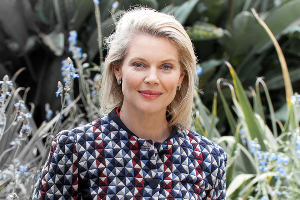
Inflation is expected to break through the RBNZ’s top line of 3% in the next quarter, intensifying its headache.
The central bank meets on 9 July to review the OCR and BNZ research head Stephen Toplis says there is every chance there will be a pause on recent drops.
Toplis’ comments come after Stats NZ latest data in the Selected Price Indexes (SPI) showing food prices rose 4.4% in the 12 months to May.
He says in the past the RBNZ has implied it would look through any short term uptick in prices especially if they were shock driven. But equally, it was clear, when it released is May Monetary Policy Statement it was nervous about rising inflation expectations.
“One member of the committee was sufficiently nervous to vote against the rate cut that was delivered. That committee member is going to feel no less unnerved this time around and may well acquire a few friends.
“So, the chances of the RBNZ holding fast at the July meeting have just taken a leap forward in light of the latest SPI data and the evolving global environment.
“As if all this wasn’t bad enough, the Israel-Iran war has resulted in a sharp reversal of recent oil price declines, and they threaten to head even higher yet.”
The factors that bother BNZ’s economists most are the jumps in the prices of fresh fruit and vegetables, meat and energy costs, although they believe it is farcical this category even exists in the Consumer Price Index (CPI).
These price increases are most bothering because their impact on the real disposable incomes of households is largely unavoidable, Toplis says.
The increase in food prices reflects elevated global commodity prices.
As commodity price inflation slows, or even reverses, this should become less of a problem, but energy price increases are still coming thick and fast just in time for the coldest time of the year.
“As if all this wasn’t bad enough, the Israel-Iran war has resulted in a sharp reversal of recent oil price declines, and they threaten to head even higher yet.”
Toplis says this is a completely different environment than that which saw the prices of petrol and diesel fall in May.
While domestic market players continue to suggest pump prices should not rise dramatically, unless freight traffic through the Strait of Hormuz is compromised, it still appears likely further cuts in petrol prices are now off the cards, he says.
“We had further declines built into our inflation forecasts which have now been removed.
“Unfortunately, this means we have also nudged higher our quarterly CPI track for the second half of the year.”
The BNZ still believes annual inflation will remain relatively well contained over the medium term but will not get back towards the mid-point of the RBNZ’s target band until the third quarter next year.
“We think slowing global demand, ongoing spare capacity in the New Zealand economy, slowing commodity price inflation and the potential reversal of any near-term oil price increases could well see inflation fall below 2% for a period of time,” Toplis says.
BNZ’s economists were tempted to change their rate call on the basis of these factors, but want to see the 1 July Quarterly Survey of Business Opinion (QSBO) before making that decision. There is a chance that business confidence will drop sharply in this survey.
If it shows much weaker growth ahead, or an outright end to the expansion, then there may well remain solid justification for a July move. Either way the BNZ sees little reason to change its view that that the cash rate will ultimately drop below 3%.




Comments
No comments yet.
Sign In to add your comment